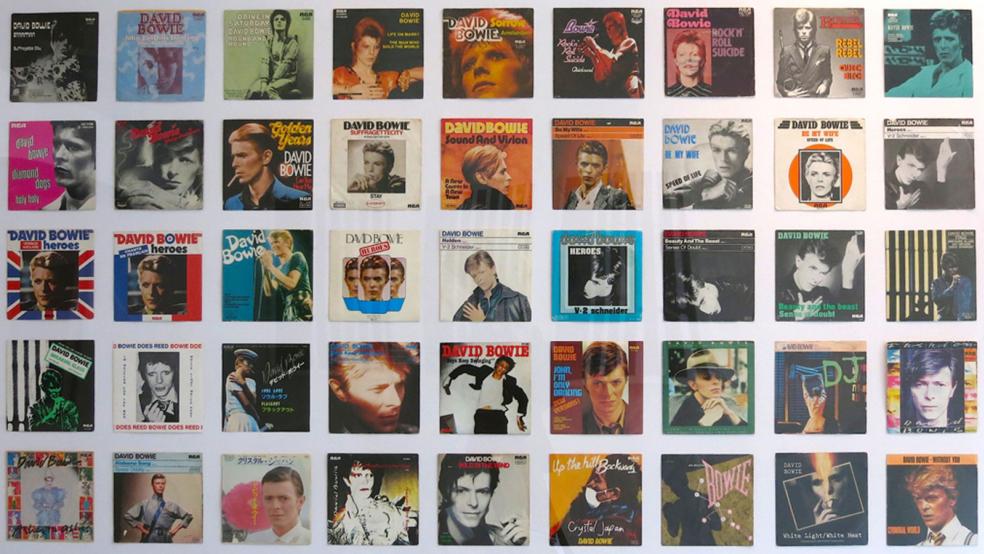Monday mornings are already enough of a struggle without waking up to discover that someone special has left us. The news tickers shout “Music Legend David Bowie Dies at 69,” but that simple epitaph feels inadequate. Obituaries and tributes highlight the artist’s protean fluidity, simply because there is no other way to classify him.
Write a four-chord pop song with sugary harmonies and critics will scream “Beatlesque,” blues it up and it’s “Stones-y.” But Bowie, alone among the boomer rock icons, remains unclassifiable.
To talk about Bowie’s music, though, you need to embrace the much remarked upon transitions -- the psychedelic folk of the Space Oddity days and the nasty guitar and gender fluidity of the Ziggy Stardust period, the Philly Soul singer, the German electronica enthusiast, the MTV pop star, the industrial noise maker and, finally, the avant-jazz torch song balladeer.
Related: 2015: The Year Snobbery Died and Technology Finally Won in Movies, Music and TV
And even if a single article could encapsulate his contributions to music, there was much more to Bowie’s artistry, including his multiple film roles, many of which have been quite good. He also played in a significant role in fashion and as a public persona, a sort of icon of restless artistry forever seeking the new.
Bowie’s fluidity is so much a part of his persona that it’s written into his name. Born David Jones, early in his career he feared confusion with Davey Jones of the Monkeys and adopted the new last name, picked from the American frontiersman Jim Bowie. It’s difficult to think of two more different men. During the recording of Lou Reed’s “Take a Walk on the Wild Side,” which Bowie produced, he brought in his childhood saxophone tutor, Ronnie Ross, to play the now-iconic solo. When Ross nailed the song in a single take, Bowie went in to thank his former teacher.
Curious as to who had recommended him, Bowie responded, “Ronnie, it’s me, David Jones from Brixton.”
Ross’ response was allegedly, “Holy sh*t, you’re David Bowie!”
However, for all of Bowie’s reputation as a trailblazer (one thing he has in common with his namesake), it is important to note the degree to which he was actually an interpreter of the vanguard. Whether he was aping Dylan or the Velvet Underground or Kraftwerk, Bowie was rarely doing something entirely original. He was simply doing an original thing better and with broader popular appeal. And he always had the extraordinary enthusiasm of the first fan to jump on the bandwagon.
It’s important to note Bowie’s lack of cynicism about these changes. Archival footage from his Philly years shows not a man who’s decided to make a “soul album” but a man who honestly believed that he now WAS a soul singer. When the Stones were chasing disco, fairly late in the game, Bowie was freezing his tail off in Berlin with Brian Eno and a stack of Stone Age computers.
Even his MTV years (and, to a lesser degree, his 90’s industrial experiments) were not opportunistic attempts to stay relevant, but legitimate interest in an evolving art form.
He wasn’t trying to keep up with the kids to make money. Instead, he was trying to keep up with the kids because he was legitimately interested in what they were doing. (None of this excuses the “Dancing in the Street” video, which remains one of the worst things ever on MTV. But I’ve come to praise, Bowie not to bury him.) By and large, Bowie acquitted himself in the dawn of the MTV age with far more grace than, say, Jagger or McCartney. His videos were alive with the vibrant visuals of 80’s SoHo pop art.
Related: Why the Massive Success of ‘Star Wars’ Will Be Terrible for Movies
And Bowie was always a multimedia artist. His Ziggy Stardust-era stage show was every bit as legendary as the epic album. Hollywood made use of his otherworldly appearance frequently, casting him (effectively) as a decadent alien, a modern vampire, and as the Goblin King. Christopher Nolan made him a very dignified Nikolai Tesla, lending gravitas to the moment the film The Prestige tips into science fiction. Martin Scorsese made him a very-chilly-indeed Pontius Pilate.
And of course, there is this …
Bowie turned 69 just last Friday. On the same day he released a new album, Blackstar, a jazzy, atmospheric creation that was showered with praise by critics around the world. Rumors of his illness had been circulating for a number of years, and sad though his passing may be, it is fitting that he would go out on a high. While others of his generation continue to rake in the cash on their greatest hits tours, Bowie proved that true immortality comes with a restless spirit.




